The latest Governor General controversy – have we already had our conservative revolution in Canada?
Aug 11th, 2020 | By Randall White | Category: In Brief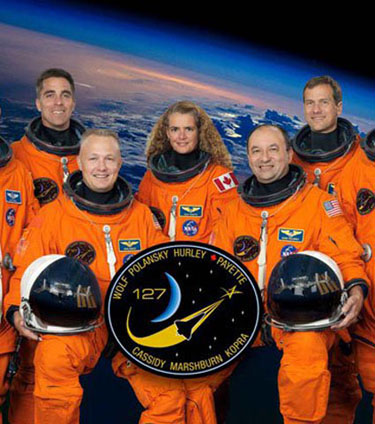
TELEGRAM FROM RANDALL WHITE. GANATSEKWYAGON, ON. It is no doubt only to be expected that strange things will happen during such historical eras as the COVID-19 global pandemic – in public as well as private life.
That any rate strikes me as the most sensible context in which to view the summer 2020 controversy over the 29th “Governor General and Commander-in-Chief of Canada,” Her Excellency the Right Honourable Julie Payette.
The controversy can now be traced back several weeks to, eg : “Gov. Gen. Payette has created a toxic climate of harassment and verbal abuse at Rideau Hall, sources allege.”
Some would say the state of the art today is reflected in “Trudeau government refuses to support Gov. Gen. Julie Payette while under scrutiny … ‘Canadians absolutely have the right to look carefully at how we spend Canadians’ money,’ Freeland says.”
For the “scrutiny” here see (to start with) : “The Privy Council Office, a bureaucratic operation that supports the prime minister and cabinet, said last month it was launching an independent review of the allegations. Payette said she welcomed the probe.”
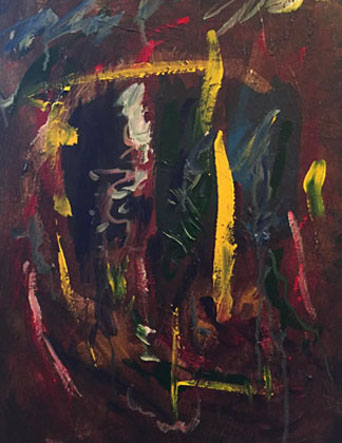
As someone who has been at least vaguely following the office of “Governor General and Commander-in-Chief of Canada” for a few decades now, I have also been especially struck by a CBC News opinion piece from Aaron Wherry, posted just this past Saturday : “Julie Payette’s controversies could be a big problem for Rideau Hall.”
A number of things Mr. Wherry says about the office of Governor General in our “country and its democracy” strike me as altogether apt and well worth underlining, regardless of your partisan political sympathies or broad political philosophy.
Other things he urges about Governor General Payette’s latest troubles, and how they relate to the 21st century future of the office in Canada, strike me as lamentable reflections of just how almost mindlessly conservative the mainstream media has become on this and related Canadian issues, in the more recent past.
This particular trend, it seems to me, largely began with the Stephen Harper Conservative government in Ottawa (2006—2015). For whatever reasons, it has largely carried on under the Justin Trudeau Liberal government, to the present day.
The two faces of Aaron Wherry on the Governor General of Canada
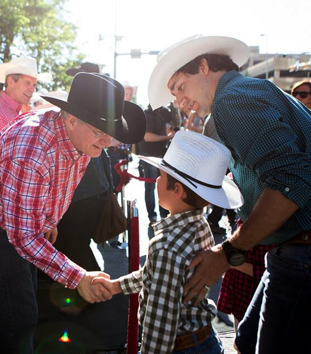
The things Aaron Wherry says about the office of Governor General in Canada today that strike me as well worth underlining, regardless of your political philosophy, peer out, eg, from the following passages :
“… the Governor General might seem like a simple figurehead charged with mere formalities. But it is the Governor General who ensures the peaceful transition of power and imposes a certain measure of restraint on the prime minister of the day. It is the Governor General – a non-partisan officer who is expected to maintain their distance from political debates – who the prime minister must ask to suspend Parliament or call new elections … It is the Governor General who presides over the formation of a new government and, in rare circumstances, settles disputes over who should be entitled to seek the confidence of the House of Commons.”
On the other hand, Mr. Wherry strays onto almost mindlessly conservative (and, with apologies to the Trudeau Liberals, even Conservative) ground, when he offers such propositions as :
“The viceregal office is easily dismissed as an archaic ornament – a leftover remnant of British rule and the days before Canada became a mature democracy. But the Crown remains a central element of Canada’s democratic structure. And there is much to be said for the stability, democratic safeguards and historic success of constitutional monarchy, particularly as compared with the American presidential system … the pressing question for both Trudeau and Payette is whether the former astronaut can continue to represent the Queen without doing significant damage to one of the foundational institutions of Canadian democracy… Beyond that, there is the risk that controversy or scandal could endanger the future of the office itself. Any loss of public faith has at least the potential to lead to the sort of change – perhaps to an elected head of state – that could have significant consequences for the country and its democracy.”
The deeply conservative ideology of the monarchy in Canada today
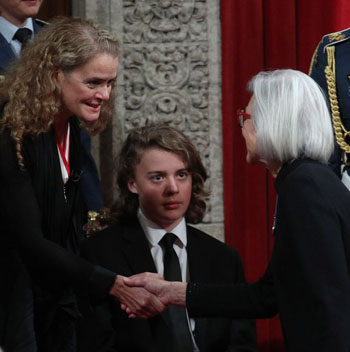
To take Aaron Wherry’s strictly ideological propositions one by one, it is a species of conservative political philosophy (as opposed to non-partisan political science) to oxymoronically argue that the “the Crown remains a central element of Canada’s democratic structure.” (Or to call the monarchy ”one of the foundational institutions of Canadian democracy.”)
In today’s global village there are national political systems with the same “democratic structure” as Canada – and even the same earlier relationship to the British monarchy – that no longer have anything to do with “the Crown.” (Ireland and India are two big examples.)
It is similarly conservative (and parochial and provincial) to argue that “there is much to be said for the stability, democratic safeguards and historic success of constitutional monarchy, particularly as compared with the American presidential system.”
The “democratic safeguards” afforded by the monarchy here are really just safeguards against too much democracy. Similarly, the mainstream media in Canada today and all the main political parties quite systematically ignore the diverse Canadian republican movement that has been quietly gathering steam since the late 20th century.
(Even though this past January a You Gov survey found that “44 percent of Canadians strongly or somewhat support abolishing the monarchy in Canada, while 29 percent strongly or somewhat oppose the notion.” An Ipsos poll reported : “Six in 10 Canadians agree that the Queen and the royal family should not have any formal role in Canadian society.” And, according to an Angus Reid poll, “ two-thirds (66%)” feel the monarchy in Canada “is losing or has lost relevance.”)
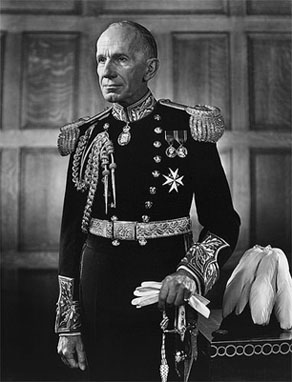
One thing those of us who have been following the Canadian republican movement over the past few decades can confidently report in 2020 is that, whatever else, it has at least sensibly come to focus on the kind of parliamentary democratic republic consistent with Canada’s history and future in the modern Commonwealth of Nations. (See, eg, the websites of Citizens for a Canadian Republic and Republic Now.)
The real-world models for a serious Canadian democratic future – shorn of the aristocratic and elitist (and not at all democratic) values that even the present day “constitutional monarchy” in the United Kingdom and 15 other so-called “Commonwealth Realms” inevitably stands for – are such 21st century parliamentary democracies as Germany, Iceland, India, and Ireland.
Here as elsewhere today there are very few admirers of “the American presidential system.” But it is part of the traditional (and quite conservative) monarchist ideology in Canada to pretend that the only serious alternative to somehow hanging on to the monarch who lives in the United Kingdom is to fall in line at last with the wild and crazy Democracy in America next door.
(To which Canadian republicans in 2020 can only reply that we are not going down that road. We will remain a parliamentary government “on the Westminster model.”)
Electing the head of state in a parliamentary democratic republic – how it works in 21st century Germany, Iceland, India, and Ireland
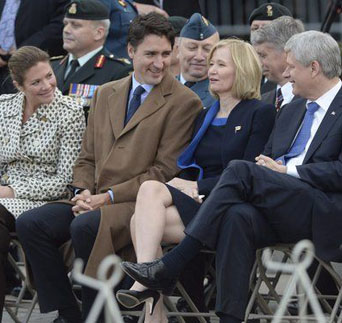
It is also profoundly conservative (and even almost radically right-wing) to demonize the idea of “electing a head of state,” as Mr. Wherry does eg, when he writes : “controversy or scandal could endanger the future of the office [of Governor General] itself.”
He goes on : “Any loss of public faith has at least the potential to lead to the sort of change – perhaps to an elected head of state – that could have significant consequences for the country and its democracy.”
Yet “an elected head of state” is exactly what the office of Governor General turns into when former constitutional monarchies turn themselves into full-blown constitutional democracies or republics. And as illustrated by the four current parliamentary republics noted above that have already made this journey, there are two main elected head of state options – indirect election by already popularly elected legislators (Germany, India) or direct popular election by the people of the country (Iceland, Ireland).
Both these options have now been practised successfully since the middle of the 20th century, by countries that have, in one sense or another, prospered nicely enough in our times today.
Aaron Wherry is right that following this path will have at least some “consequences for the country and its democracy.” It will, eg, make our democracy much more democratic, in principle as well as in raw fact.
At the same time, the ordinary governmental processes of our current Canadian democracy will not actually be changed in any fundamental or even just significant way. There will still be a Governor General (even if under another name), playing much the same role as Mr. Wherry nicely sketches in the parts of his article that are altogether apt and well worth underlining, regardless of your partisan political sympathies or broad political philosophy.
Does Canada today have the courage to reform the office of Governor General, as a real mature Canadian parliamentary democracy ought to?
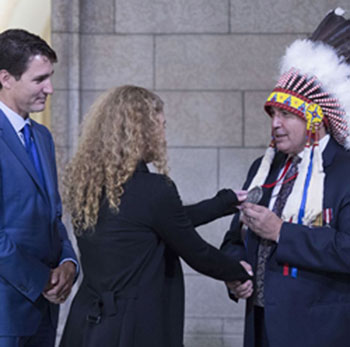
What both Governor General Julie Payette’s current circumstances and all this above do clearly enough point to is the growing need to reform the selection process for the office of Governor General and Commander-in-Chief of Canada.
As matters stand, at this point in the evolution of the office, the Governor General of Canada is effectively appointed by the Canadian prime minister – in his or her capacity as must-be-obeyed advisor to the monarch in the United Kingdom.
As Aaron Wherry wisely notes, however, the Governor General is meant to impose “a certain measure of restraint on the prime minister of the day,” and decide on the prime minister’s requests “to suspend Parliament or call new elections.”
Does it make any sense at all for such an official to be appointed by the same person who is meant to be restrained and so forth? (And isn’t this the real scandal about the Governor General of Canada today?)
Stephen Harper tried to provide an easy answer to this conundrum by appointing a group to advise him on Governor General (and Lieutenant Governor) appointments. Yet he remained the person who made the ultimate appointment. Justin Trudeau understandably enough did not bother with Harper’s formal advisory group when he appointed Julie Payette.
To make a too long story short enough for now, I do believe myself that our Governor General or head of state in Canada (both in theory and de facto or in practice) will only be seriously credible in the role for the 21st century when he or she has been directly or indirectly elected by the Canadian people – the real practical sovereign power in our political system today.
Like others who feel about the future of the country as I do, it distresses me that the main political parties and the mainstream media today are so deeply wedded to a quite deeply conservative and over-cautious view of the Canadian future. And in the year 2020 this too often seems to make such noble projects as effective democratic reform of the office of Governor General (with or without parallel action on the British monarchy) virtually impossible.
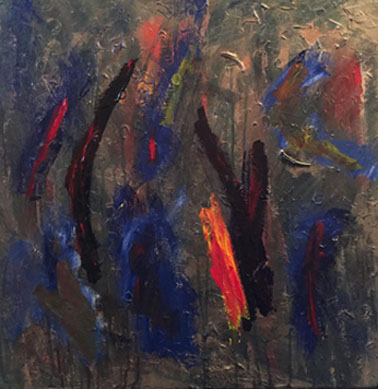
Where in our present Canadian political rainbow, that is to say, are the descendants of those who created the legal status of a Canadian citizen (as opposed to British subject) in 1947, gave us a Canadian Governor General of Canada in 1952, an independent Canadian flag in 1965, and the “free and democratic society” of the (largely republican) Constitution Act, 1982?
More broadly, where are the stand-up democratic descendants of the great diversity of past Canadian people, who have struggled to keep moving ahead with what Brian Slattery at the Osgoode Hall Law School (back in the middle of the 1990s) called “the long process of decolonization that Canada has undergone since 1867”?
Still, who knows? Perhaps the pandemic will somehow help us become a real independent “free and democratic society” at last (as already alluded to in the Constitution Act 1982). Even if it will still take a while longer yet …
Meanwhile, it might make the most sense right now for Her Excellency the Right Honourable Julie Payette to offer some sign of ostensible greater friendliness to the staff who are criticizing her (though aren’t they in some sense at fault too?) And then we can all go back to sleep, until we are brave enough to talk about the issue more seriously and constructively, in a way that will last into the longer term future.
Randall White has a PhD in political science from the University of Toronto. From the late 1960s to the early 1980s he worked as an Ontario public servant. He subsequently worked as an independent policy consultant for private and public sector clients at all three levels of government. He has written 11 books on Canadian history and politics, and is at work on a twelfth. When not on summer holidays in 2020, he contributes a regular column to the Ontario News Watch website. His writing on history and key current issues in Canada’s most populous province appears on this counterweights site as well.


Randall…I enjoyed every word in this article that you wrote…and I concur fully with your recommendations. It is this kind of analysis that should be carried by all the major newspapers and digital media because it represents a course of action to essentially make our country a true parliamentary democracy…independent and unique. Thank you for all your efforts in describing the issues that require reforming in the top position in our governmental structure and I hope this approach is incorporated in your upcoming new book. And when we have all read your new book and have the recommendations approved and implemented…perhaps then we will all sleep better as Canadians..
Many thanks Ron. What this country really needs right now is more awesome free and democratic Canadian republican activists like Ron Berdusco. Thank you for all your hard work in the struggle. If we all keep struggling in our various best ways, no doubt, at some point soon enough all we Canadian people will sleep a lot better on our cold winter nights (like when we were growing up on Wawa Lake!). Cheers and best wishes.